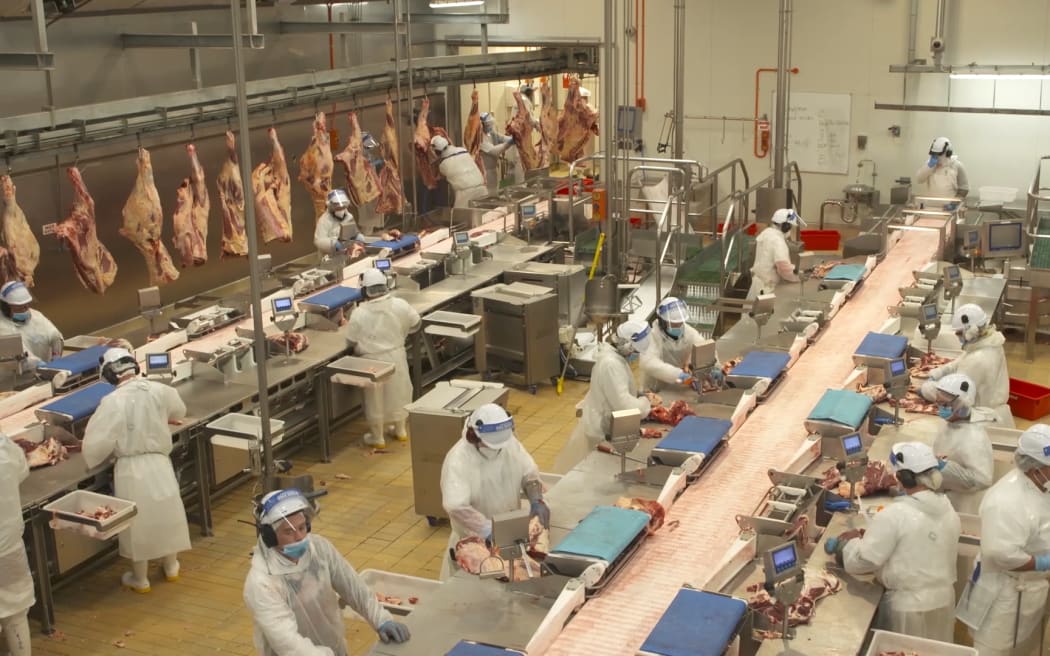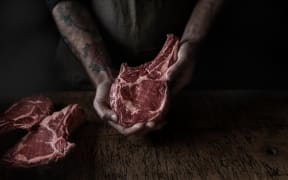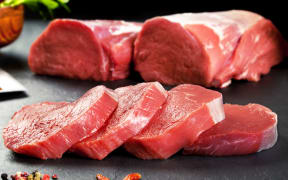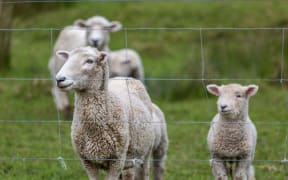
Alliance Group meatworks in Southland. Photo: RNZ / Nathan McKinnon
Red meat cooperative Alliance is asking its farmers to help raise share capital to ensure it remains 100 percent farmer-owned, in the face of significant financial pressures.
Alliance Group was profitable for nine out of the last 10 years - last year, it reported a $70 million loss after tax in the year to September, a serious dive on the year before's $73.6 million profit.
Market volatility, inflationary pressures and weakening global markets were behind the recent drop.
After warning its farmer-shareholders at its AGM last year, Alliance's board has approved increasing the standard share-holding from 12 to 16 shares per livestock unit processed, and farmers will also face an extra three-dollars per livestock unit at the works, effective immediately.
Group chair Mark Wynne said there was "probably never a great time to ask for money from shareholders".
"We acknowledge that times are extremely tough on-farm, and this is not an ideal time to implement such changes. We have explored all other viable opportunities to reduce working capital before seeking capital from farmers," he said.
"However, in order to remain a 100 percent farmer-owned co-operative and continue to drive towards our goal of being New Zealand's most efficient processor, an increase in shareholder equity is required."
Alliance was the country's only entirely farmer-owned red meat cooperative, employing more than 5000 people at its seven processing plants across Southland, north Otago, Timaru and Nelson. Last year's loss meant its 4500 farmer shareholders did not get a distribution payment.
Wynne said despite expecting a modest profit this fiscal year, it still needed capital funding without having a reliance on debt funding.
He said it needed between $100 million to $150 million over the next two to three years to restore Alliance's balance sheet, but that wouldn't come solely from farmer-shareholder contributions.
"With shareholder investment, we can reduce our reliance on lenders to fund our working capital debt, expand our product offerings and explore new opportunities to support the transformation of the co-operative to deliver more value to our farmers.
"We will also continue to pursue other options to reduce working capital requirements," he said.
Wynne acknowledged Alliance could lose some of its farmers in the process, which will be revealed over the next few months.
"Obviously, [farmers] will have options. They will either send their stock to Alliance and continue to share-up, or we believe a small percentage - and truly hope it is only a very small percentage - that may decide to send stock elsewhere," he said.
"That will be up for the farmers to decide."
Impacted farmers and shareholders will receive letters about what the changes might mean for them, and they will be able to engage with directors directly in the coming weeks.




